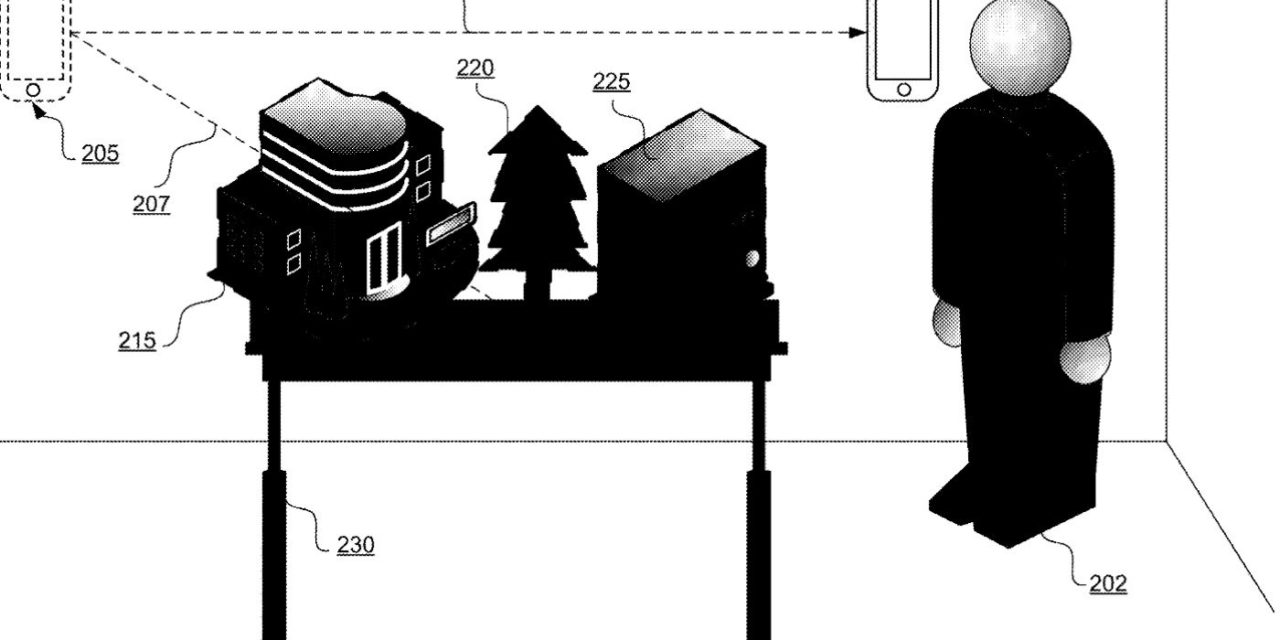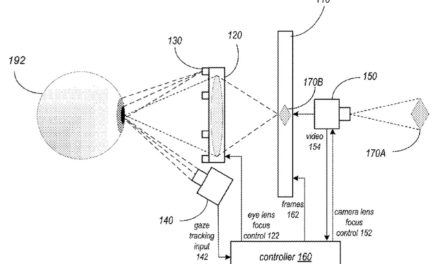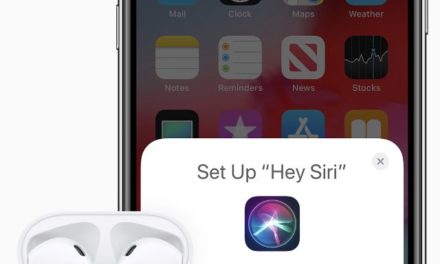Apple has filed for a patent (number 20220335699) for a “cooperative augmented reality map interface.” It involves enhancing the augmented reality (AR) Maps app on the iPhone.
Background of the patent filing
In the patent filing, Apple notes that modern phones can provide location information via a map application. The view of a map is typically a top down view (i.e., an overhead view) of a grid of streets. The top down view may also provide a satellite image.
However, when a user is at a particular view of a map, the user may wish to have a three dimensional (3D) view. The 3D view can be provided from a perspective of a virtual camera. Typically, the position of the virtual camera is specified via a touchscreen interface through gestures (i.e., a touch, a drag, a rotation, etc.).
Apple says it may be convenient to view a 3D map on an iPhone where the location of the mobile device changes the view of the 3D map by moving the perspective of the virtual camera, e.g., via an augmented reality (AR) interface or a virtual reality (VR) interface. The VR interface may display the 3D map, while the AR interface may have an overlay of the 3D map on camera images captures by the phone.
What’s more, an iPhone user may want to send his or her particular view of the 3D map from his or her mobile device to another user’s mobile device in order to share the particular view. For example, a city planner may want to take someone on a virtual guided tour of a 3D map, where the images are generated using the user interface.
Such user-generated videos may be transmitted over a network, which may use a large amount of bandwidth. Therefore, Apple’s patent filing also involves systems and methods of sharing 3D map views at a reduced bandwidth.
Summary of the patent filing
Here’s Apple’s abstract of the patent filing: “To reduce this amount of bandwidth needed to share 3D map images between mobile devices, according to some embodiments, a user’s mobile device (i.e., a host device) may identify its origin in a 3D map and a current virtual camera position relative to the origin based on the physical position of the mobile device. The mobile device may send both the origin and the virtual camera position to another mobile device (i.e., a client device) for use in rendering a corresponding image. Separately, the client device may download the 3D map images from a server, e.g., in preparation for a meeting. In this manner, the host device may send the origin to the client device once, as well as send a data stream of the current virtual camera position for use in accessing the corresponding 3D map images at the client device.
Article provided with permission from AppleWorld.Today





